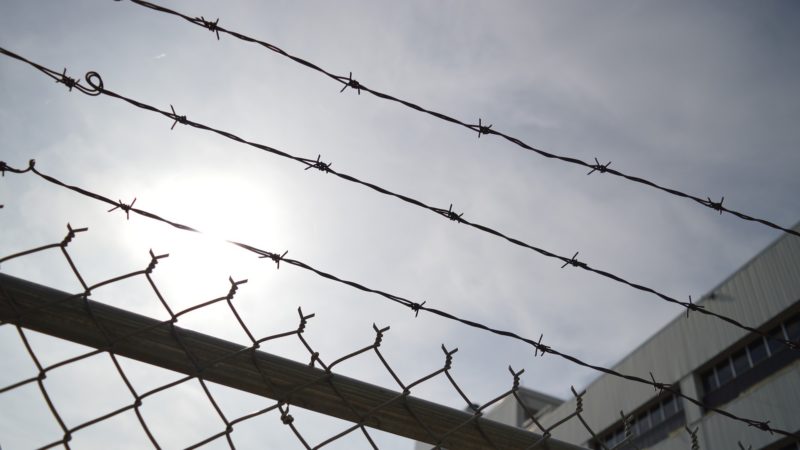
If you’ve been following the news over the last few weeks, you might have come across the case of Ken Macharia. Ken is an LGBT+ asylum seeker living near Bristol whom the Home Office is currently trying to deport. If it succeeds, he’ll be sent to Kenya – a country where he’ll face gross persecution for his sexuality and could face up to 14 years in prison under colonial-era anti-sodomy laws.
The Home Office both accepts that Ken is gay and that Kenya is unsafe for LGBT+ people. Despite this, they’re pushing ahead with their efforts to deport him and recently detained him at Colnbrook immigration removal centre (IRC). This is the hostile environment at its most senseless and most cruel. The Home Office is ignoring evidence and common sense (and apparently its own guidelines) to send a gay man into danger – during Pride month no less.
Ken’s case is not unique. Over the last few years in particular, tales of the Home Office’s distinct blend of cruelty and indifference have come to light with terrifying regularity. We recently learnt that another Windrush victim has died without receiving compensation or apology. Last month, we found out that Home Office subcontractors are using discredited pseudoscience to question asylum seekers’ countries of origin.
Whether you reached the conclusion upon learning of the physical and sexual abuse in detention centres such as Yarl’s Wood, that the Home Office will deport gay people to Afghanistan with the advice to ‘act straight’, or that the government altered its own definition of torture to allow them to detain victims of terror groups and human traffickers, it should be clear by now that our country’s approach to immigration and asylum isn’t just flawed – it’s rotten to its very core.
This is why Labour Against Racism And Fascism’s ‘End Detention’ campaign is so important. Detention is one of the worst aspects of government policy: individuals are arbitrarily detained and held in prison-like conditions for indefinite periods of time, often years. Many of the detention centres they’re held in are geographically isolated, cutting people off from their communities and support networks. This experience is, unsurprisingly, deeply traumatic and can lead to severe mental health issues. This is particularly the case for asylum seekers who have experienced violence or imprisonment previously in relation to the persecution that they are fleeing. As an exercise it’s also largely pointless. The majority of those detained are eventually released back into their communities – begging the question of why they were detained at all.
While Labour’s current policy offers a decisive break with the past and will stop some of the worst abuses that we’ve seen, it does nothing to dismantle the apparatus of oppression that the Home Office has built up over the years. Closing the most infamous detention centres (Yarl’s Wood and Brook House) and introducing a 28-day time limit is a fantastic start, but by leaving the institution of detention intact we risk having these improvements reversed the second we’re out of power. A 28-day limit can easily be extended while the detention estate still stands, meaning Labour will need to go further if we’re to create change that will outlive our next government. This is before even considering the more basic moral point: that midnight raids and immigration prisons – no matter how humanely administered – can never really be a part of an asylum system that’s based on human rights.
The case for abandoning detention becomes even clearer when you compare it to the alternatives. As the 2015 Parliamentary Inquiry on Detention identifies, there are numerous viable, community-based models already in use worldwide that the UK could adopt in its place. The most successful of these systems don’t curtail people’s freedom of movement, provide them with the means to live independently and with dignity, and prioritise transparency so that people understand the process they are going through. This leads to higher rates of compliance, lower levels of absconding and costs on average 80% less than detaining people in IRCs. Most importantly, though, these systems help avoid the appalling effects on mental and physical health that are associated with detention – and it’s for this reason that groups like the British Medical Association are calling for a “fundamental rethink” of our asylum system towards a community model.
The arguments against detention are easy to make and our communities are already making them. In Ken’s case, it was his rugby club that began the campaign against his detention and threatened deportation. Since then, local activist groups, Bristol Pride and even one of the city’s largest gay bars have joined the struggle to keep him home. In other situations it’s been faith-groups, groups of school kids and local neighbourhoods that have fought back against the Home Office. People see the injustice when their friends and neighbours are detained for no other crime than seeking safety. There’s a growing awareness of the inhumanity that’s built into government policy, and as the anger around the Windrush scandal has shown, there’s a real desire for change. Labour can bring about that change – and we should start by abolishing detention.




More from LabourList
Sadiq Khan signals he will stand for a fourth term as London Mayor
Starmer or Sarwar: Scottish Labour MSPs and MPs split over Keir Starmer’s future
‘Every Lidl helps: What can the Government do to bring down food prices?’